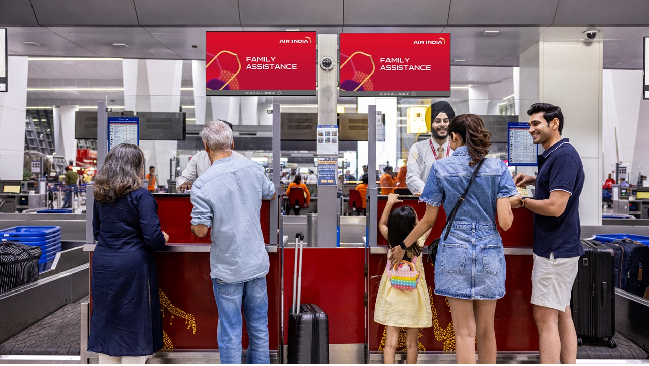As summer holiday season kicks off across the UK, officials are issuing a strong advisory to air travelers: think twice before sharing that boarding pass selfie online. What may seem like a harmless snap on Instagram or Facebook could expose you to serious cyber threats—from identity theft to having your holiday disrupted or even cancelled.
With a surge in international travel and growing reliance on digital boarding passes and online check-ins, cybercriminals are finding new ways to exploit unknowing travelers, turning your excitement into a potential security breach.
Your Boarding Pass: A Goldmine for Cybercriminals
Legal and cybersecurity experts are sounding the alarm over how much information is encoded in a simple boarding pass. These documents carry more than just your flight details—they often include:
- Full name and date of birth
- Frequent flyer number
- Booking reference
- Passport details (linked in backend systems)
- Seat assignment and travel history
According to Adam Jones, legal advisor at HD Claims, “Posting a picture of your boarding pass—especially with visible barcodes or QR codes—could hand cybercriminals access to your flight booking, airline account, and even sensitive passport data.”
With that access, criminals can alter your itinerary, cancel return flights, or even steal frequent flyer points to book new trips in your name—all without you knowing until it’s too late.
Online Check-In: A Convenience with Hidden Risks
Many UK carriers and budget airlines offer streamlined online check-in systems. While they’re convenient, these portals are often vulnerable when travelers expose booking reference numbers on social media.
Even partial images of boarding passes can be scanned or digitally reconstructed to reveal the booking reference. Combined with your last name (commonly visible on social media), these details give scammers enough information to breach your account.
In a recent UK incident, a traveler who posted a celebratory photo of their boarding pass had their return flight changed by a hacker. The airline denied compensation, stating that the customer inadvertently exposed their credentials.
Essential Tips to Protect Your Travel Data
Whether you’re flying for business or holiday, simple changes in your habits can prevent major disruptions:
1. Never Post Your Boarding Pass Online
Avoid uploading photos of your ticket or boarding pass—even if the barcode is blurred. Many cybercriminals can still extract information from partially visible codes.
2. Shred Boarding Passes After Travel
Don’t leave your boarding pass in hotel rooms, airport bins, or taxis. Always shred or securely dispose of it once your journey is over.
3. Use Airline Apps with Caution
Ensure you’re using official airline apps and keep them updated. If you’ve shared your ticket details accidentally, reset your airline login credentials immediately.
4. Avoid Public Wi-Fi for Flight Management
Refrain from checking in, managing bookings, or accessing email over public Wi-Fi in airports or cafés. Instead, use mobile data or a VPN for added security.
5. Monitor Your Accounts for Unusual Activity
Check your frequent flyer programs, credit cards, and travel accounts regularly for unexpected changes or charges. If anything seems off, alert your airline and bank immediately.
The Role of Airlines and the Gaps in Legal Protection
While airlines are increasing public awareness about the issue through in-app warnings and airport signage, current protections for victims of airline-related cybercrime are limited.
Unless there is a proven breach on the airline’s end, travelers are often held responsible for voluntarily sharing booking information. Legal redress is rarely straightforward, especially if the financial loss occurs through frequent flyer miles or flight changes rather than direct monetary theft.
“Think of your boarding pass like your credit card,” says Jones. “Once it’s exposed online, it’s out of your control.”
Some airlines now automatically mask booking references in their app-generated boarding passes and encourage digital-only check-in through secure accounts. However, human error remains the leading cause of information leaks.
Awareness Campaigns and Government Guidance
UK authorities, including the National Cyber Security Centre (NCSC), have launched updated travel safety guidelines encouraging passengers to treat digital documents with the same caution as physical passports and bank cards.
The government’s travel portal now includes resources on cybercrime prevention for travelers, outlining key steps to safeguard travel-related data before, during, and after your journey.
Final Word: Don’t Let Cybercrime Steal Your Holiday
Travel is meant to be an exciting, memorable experience—but in today’s digital world, even a small mistake can lead to frustrating, costly disruptions. As international travel continues to rebound in 2025, it’s more important than ever to stay smart about your online habits.
Remember:
- Boarding passes = confidential documents
- Social media isn’t private
- Prevention is easier than recovery
Stay vigilant, follow basic cybersecurity practices, and share the memories, not the boarding pass. A safe journey starts with protecting your personal information from takeoff to touchdown.
For more travel news like this, keep reading Global Travel Wire




















